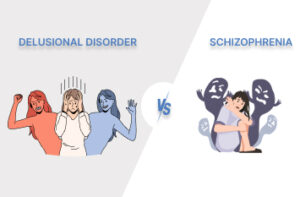
Tips to Live Your Best Life: A Comprehensive Guide
The human mind can be a complex and ever-evolving entity. We all desire to live our best life

AAevaluation, also known as a psych eval, is an assessment of an individual’s mental health and well-being. It involves a series of tests and interviews conducted by a licensed psychologist or psychiatrist to evaluate the individual’s emotional, cognitive, behavioral, and social functioning.
There are various types of psych evaluations that may be performed depending on the specific purposes and needs of the individual. Some of the most common types include:
Diagnostic Evaluation: This type of evaluation is used to diagnose mental health disorders and identify any underlying issues that may be contributing to the individual’s symptoms.
Forensic Evaluation: A forensic evaluation is conducted for legal purposes such as determining competency to stand trial, assessing criminal responsibility, or evaluating child custody arrangements.
Neuropsychological Evaluation: This evaluation focuses on assessing the individual’s cognitive abilities and identifying any potential brain dysfunction or damage.
Educational Evaluation: An educational evaluation is used to assess a child’s academic skills, learning style, and any potential learning disabilities or developmental delays.
Career Assessment: A career assessment is often performed by career counselors to help individuals identify their strengths and interests and make informed decisions about their career paths.
Fitness for Duty Evaluation: This type of evaluation is typically done for employees in certain professions to determine if they are physically and mentally fit to perform their job duties.
Personality Assessment: A personality assessment aims to analyze an individual’s traits, behaviors, and attitudes in order to gain insight into their overall personality.
Substance Abuse Evaluation: This evaluation is used to assess an individual’s substance abuse history and determine the most appropriate treatment plan.
Geriatric Evaluation: As individuals age, they may experience changes in their mental health and cognitive functioning. A geriatric evaluation is designed to assess these changes and provide appropriate care and support.
Child Custody Evaluation: This type of evaluation is often requested by courts during child custody disputes to determine the best interests of the child.
Pre-surgical Evaluation: Prior to undergoing certain medical procedures, individuals may be required to undergo a psych eval to ensure they are mentally prepared for the surgery and to identify any potential risks.
Crisis Evaluation: In emergency situations, a crisis evaluation may be necessary to assess an individual’s mental state and provide immediate intervention and support.
Mental health evaluations can be obtained through various sources, including:
Primary Care Physician: Your primary care physician may refer you to a mental health professional for an evaluation if they suspect that your symptoms are related to a mental health condition.
Mental Health Clinic: These clinics specialize in providing mental health services and may offer psychiatric evaluations as part of their treatment options.
Private Practice: You can also seek a mental health evaluation from a licensed therapist or psychiatrist in private practice.
Schools and Universities: Educational settings may offer evaluations for students who are experiencing academic, behavioral, or social difficulties.
Employee Assistance Programs (EAPs): Many employers offer EAPs that provide confidential counseling services, including mental health evaluations.
PB Psychiatric Services: PB Psychiatric Services offers comprehensive psychiatric evaluations for individuals of all ages. Our team of experienced and compassionate providers uses evidence-based techniques to assess and treat mental health disorders.

The human mind can be a complex and ever-evolving entity. We all desire to live our best life

Mental Health Break From Work: Prioritizing Well-being for Greater Productivity Get Instant Relief Now! The concept of taking a mental health break from work has

Delusional Disorder VS Schizophrenia: Understanding the Differences and Risks Get Instant Relief Now! Understanding mental health disorders like delusional disorder and schizophrenia is crucial for
